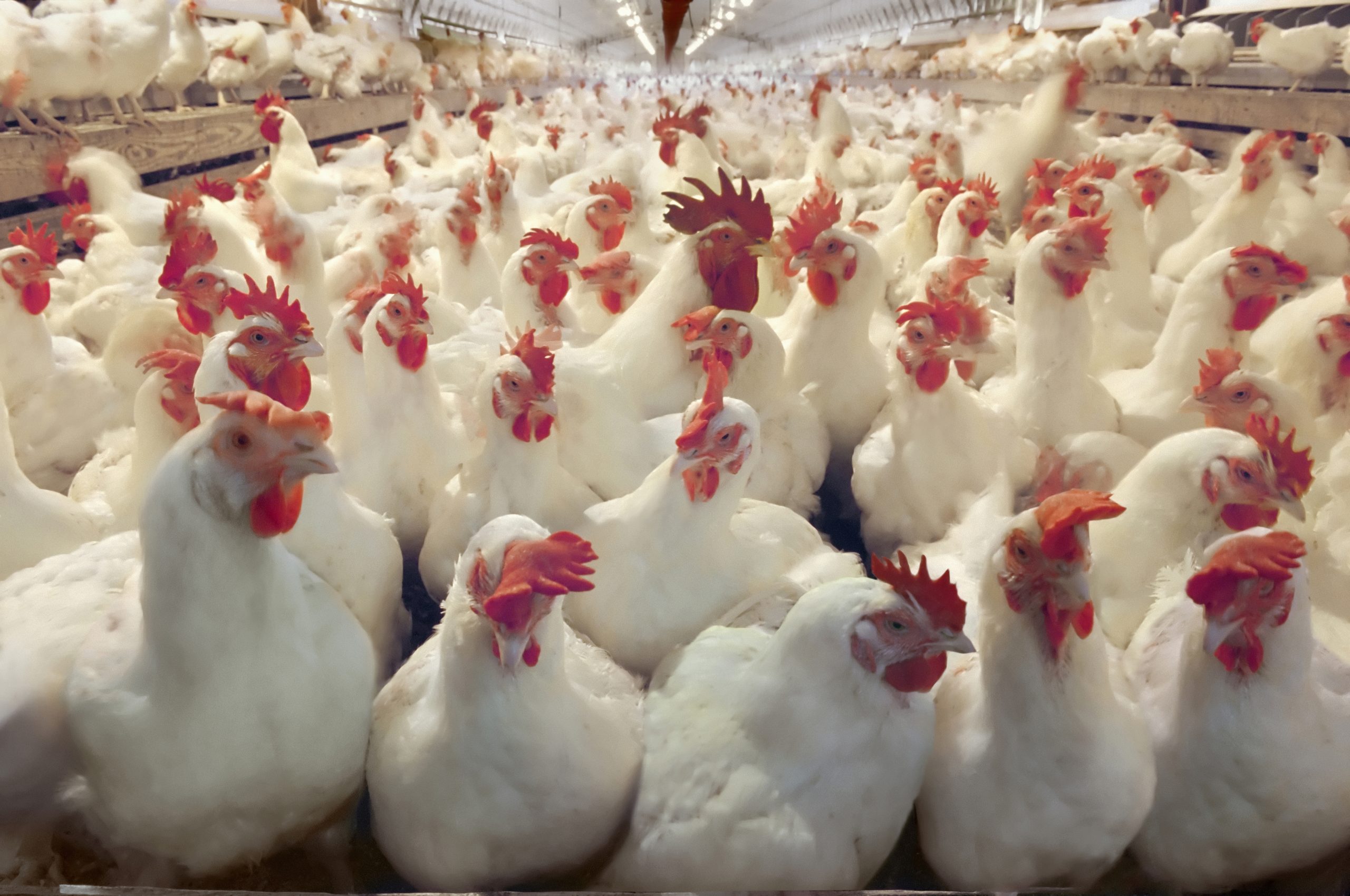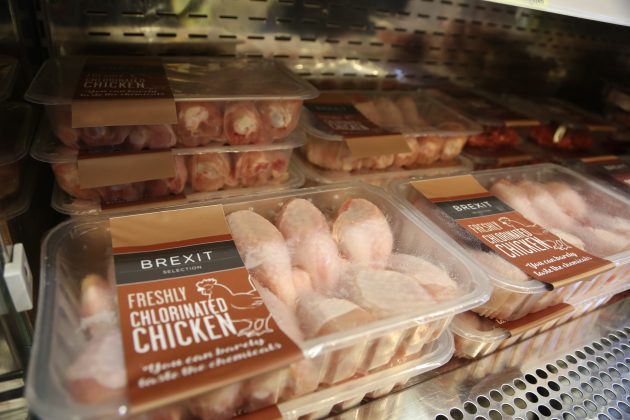Chlorine-washed chicken could be coming to your supermarket soon - but is it safe and should you be concerned?
You may have heard reports about it...

With all the news of the coronavirus pandemic still dominating daily, you may have missed the swirling reports about chlorinated chicken.
Following the agreement of the Brexit deal, a new Agriculture Bill is currently being pushed through the House of Commons.
The Independent report that the new bill has recently rejected amendments that would help to protect British farming standards in the face of any new trade deals with other countries. The amendments would have meant that any country the UK trades with would have to comply to the same hygiene and ethical standards that currently stand in UK farming.
As such, many are concerned that because these standards will not be protected in the new bill, it may give way to less rigorous farming practises. This includes some processes from the likes of the US, which is reported to regularly use the process of chlorine-washed chicken.
What is chlorine-washed chicken?
Chlorine-washed chicken is meat that has been washed in water mixed with the the chemical chlorine - the very same chemical commonly used to keep our swimming pools clean.
But before you panic, it's considered by some to be a helpful way of removing harmful bacteria and contaminants, such as salmonella and campylobacter.
It is reported that much of US meat is treated in this way.
Sign up to our free daily email for the latest royal and entertainment news, interesting opinion, expert advice on styling and beauty trends, and no-nonsense guides to the health and wellness questions you want answered.
Is chlorinated chicken safe to eat?
Although consuming chicken that has been soaked in chlorine doesn't exactly sound appetising, it's reported that it's not the chlorine itself that health officials are worried about people eating.
The European Food Safety Authority (EFSA) has said that chlorine in chicken is actually unlikely to pose a real or immediate threat to the health of consumers. You'd likely have to consume quite a large amount of it to have an adverse effect on your health, according to the EFSA.
And it's also worth noting that some fruits and vegetables are treated in this way in the UK. As well as pre-prepared salads.
MORE:RSPCA warns that having this in your garden could be lethal to wildlife
In fact, what authorities are instead worried about is the lack of health and hygiene standards that washing chicken in chlorine may give way to throughout the rest of the production process.
The EU claim that relying on chlorine washing at the end of the meat production process may foster a lack of vigilance about maintaining hygiene standards throughout the rest of the process.
RSPCA Assured explained on their website that, "The problem the EU has with chlorinated chicken is that antimicrobial treatments can be used to compensate for poor hygiene along the supply chain, particularly on farms for example.
"The EU argues that potentially poorer hygiene standards elsewhere in the process are a health concern and that the chlorine wash could simply be used as a whitewash, covering up for lower production standards on the whole."

Why is chlorinated chicken banned in the EU?
The process of chlorine washed chicken has actually been banned in the UK and EU since 1997.
Chicken in the UK and European Union can only be washed in water, or substances approved by the European Commission - of which chlorine is not one. The EU has said, "This rule is part of wider EU legislation ensuring a high level of safety throughout the food chain, from farm to fork."
There is also a concern that washing chicken with chlorine might just cover up the harmful pathogens on the meat, rather than getting rid of them completely. The Independent state that a study from the University of Southampton in 2019 found that washing food with chlorine might only make the pathogens undetectable to testing, without actually killing them, meaning they could still cause illness.
This is reported to be the reason that the UK imports minimal amounts of meat from America.
However, recently, America has stated that the method of chlorine washing is fading from their practises. America's Chicken Council said, “Although it has been proven safe, most chicken processing plants have moved away from the use of chlorine as a food safety application during the production process.
“The National Chicken Council in the United States would estimate that chlorine is used in some rinses and sprays in only about 10 per cent of processing plants in the US.”
But will chlorinated chicken actually make you more likely to get sick? It appears to be difficult to tell.
Some studies suggest food poisoning - often caused by chicken - is higher in the UK, but it is very difficult to compare data on illness like this, as many people may not go to their doctor if suffering from food poisoning.
Will chlorinated chicken be labelled?
Chickensare notlabelledas having been washed inchlorine in America. It is not known yet whether the UK would follow suit in this instance.
Chlorinated chicken UK petition
So are people against chlorinated chicken entering the UK? There are various petitions around on the Internet against the idea, including this one on 38 Degrees, and this one on Change.org.
However, petitions similar to this have been rejected by the government before.
The new Agriculture Bill is still required to be passed by the House of Lords, meaning there is still time for amendments to be added to only do trade with countries whose hygiene standards match that of the UK. If the bill is passed without these, it could meat coming in to the UK which has been processed through very standards of production.
Amy Hunt is an experienced digital journalist specialising in homes, interiors and hobbies. She began her career working as the features assistant at woman&home magazine, before moving over to the digital side of the brand where she eventually became the Lifestyle Editor up until January 2022. Amy won the Digital Journalist of the Year award at the AOP Awards in 2019 for her work on womanandhome.com.

